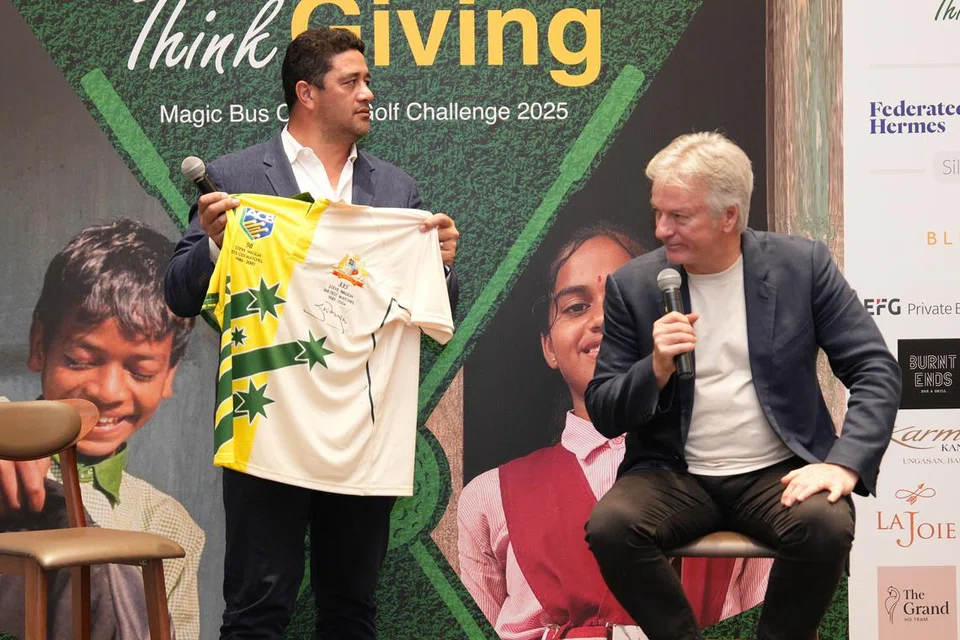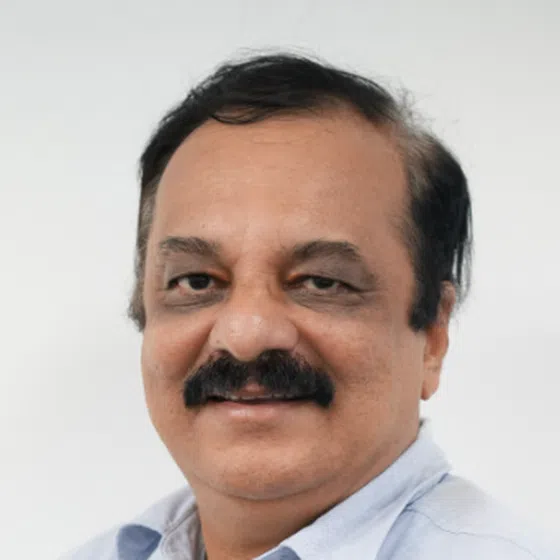Former Australian cricket captain Steve Waugh, once feared for his steely determination on the pitch, has long swapped his bat for a purpose that hits closer to the heart: giving hope to those who need it most.
On June 11 in Singapore, Waugh played charity golf at the Sentosa Golf Club and raised an impressive $170,000 at a dinner for Magic Bus, a non-profit dedicated to lifting children out of poverty in India.
Magic Bus may be one of India’s best-kept secrets for transforming young lives, but thanks to Waugh, more people now know its name.
“Fifteen years ago, as a Laureus World Sports Academy member, I visited Magic Bus in Mumbai,” Waugh recounts. “Back then, Matthew Spacie (Magic Bus founder) was literally picking up kids from Dharavi’s slums, taking them to play sports, mentoring them and teaching them life skills. To see how it’s grown to reach millions is incredible.”
Magic Bus, founded by British entrepreneur Matthew Spacie, runs its “Childhood to Livelihood” programme for over three million youth across India, Bangladesh, Nepal and Myanmar. Its mission is clear: break the cycle of poverty by equipping children with education, employable skills and the confidence to thrive.
According to Spacie, having high-profile ambassadors like Waugh helps open doors. “When Steve’s name is on an invite, new faces turn up. Many in Singapore didn’t know Magic Bus until they came to see Steve – and now they do. That’s game-changing for us.”
For Waugh, India has been a canvas for both cricketing glory and life-changing epiphanies. His passion for the country’s warmth and resilience sparked after meeting Mother Teresa in Kolkata in 1996 – an encounter that steered him towards philanthropy.
“I’ve always been fascinated by India. My first tour in 1995 had a profound effect. Meeting Mother Teresa, then visiting Udayan – a rehab centre for children affected by leprosy – made me realise I couldn’t just walk away after seeing that reality,” he told tabla!.
In 1998, Waugh began raising funds for Udayan’s girls’ wing, Nivedita Bhavan, ensuring that girls from families affected by leprosy could receive care and education, shielding them from the dire fates that often awaited them.
Over two decades later, the bond remains strong, just as his dedication to uplifting the voiceless endures.
Sport, Waugh believes, is the greatest leveller – a theme he’s championed since his cricketing days.
“Cricket in India is not just a sport; it’s a religion, a force that unites people regardless of background. That’s the beauty of sport – it makes everyone equal once you step onto the field,” he says.
Photography has become another avenue for Waugh to tell the story of India’s spirit and its enduring love for cricket.
After retiring, he spent 20 days traversing rural India, capturing 20,000 images that culminated in his book, The Spirit of Cricket – India.
The book and its accompanying Netflix documentary Capturing Cricket, offer a raw, heartfelt look at cricket’s power to bind a nation.
While cricket made him a hero, it’s the quiet refusal to rest on his laurels that makes Waugh a champion of compassion.
“Meeting Mother Teresa showed me that a life of giving is a life well-lived,” he reflects. “If you’re privileged, you have a duty to help the less fortunate. It doesn’t take a lot – just the will to act.”


